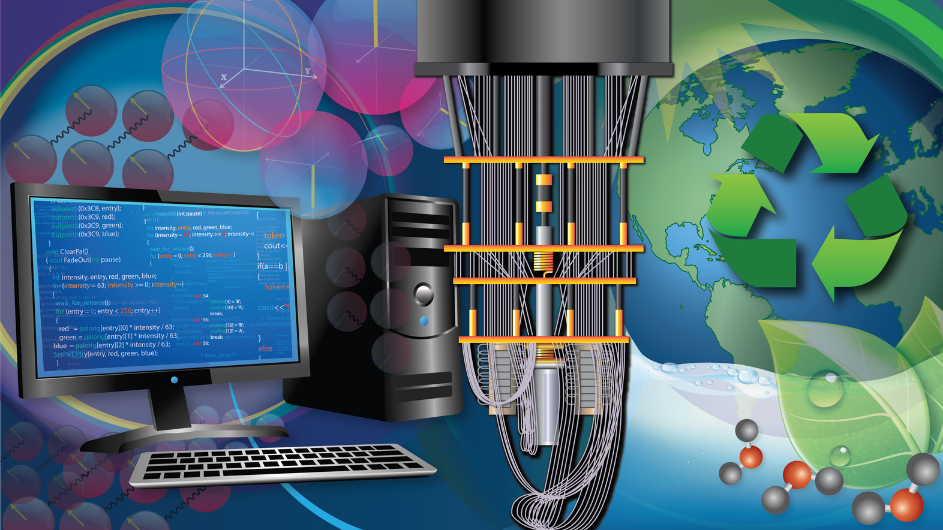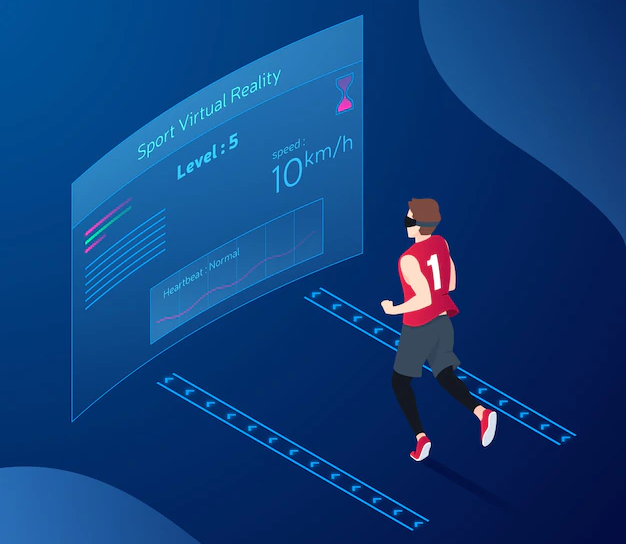Understanding Quantum Computing: A Programmer’s Guide

Understanding Quantum Computing: A Programmer’s Guide
In the ever-evolving world of technology, quantum computing stands as a beacon of innovation, promising to reshape the way we compute and solve complex problems. For programmers, it represents not just a cutting-edge technology but a new frontier waiting to be explored. In this comprehensive guide, we’ll embark on a journey into the fascinating realm of quantum computing, demystifying its core concepts and equipping you with the knowledge needed to step confidently into the world of quantum programming.
Quantum Computing: A Paradigm Shift

To understand quantum computing, we must first grasp the fundamental difference between classical and quantum computation. Classical computers rely on bits, representing information as either 0 or 1. Quantum computers, on the other hand, leverage quantum bits or qubits, which can exist in a superposition of states, allowing them to represent both 0 and 1 simultaneously. This inherent parallelism is at the heart of quantum computing’s power.
Quantum Mechanics Primer
Quantum computing’s foundation lies in the principles of quantum mechanics. While a deep dive into this field is beyond the scope of this guide, a brief primer is essential to navigate the quantum landscape.
Wave-Particle Duality
In classical physics, particles such as electrons or photons are typically seen as discrete particles or waves. However, in the quantum world, they exhibit both behaviors simultaneously, a phenomenon known as wave-particle duality. This concept challenges our classical intuition and sets the stage for the quantum weirdness we encounter in quantum computing.
Probability Amplitudes
Quantum superposition is a central concept in quantum computing, and it’s mathematically described using probability amplitudes. Unlike classical probabilities, which range from 0 to 1, probability amplitudes can be complex numbers. They represent the likelihood of finding a quantum system in a particular state, and their manipulation is the essence of quantum algorithms.
Quantum States and Operators
In quantum mechanics, information is encoded in quantum states, represented using state vectors. Quantum operators, such as Pauli-X, Pauli-Y, and Pauli-Z gates, transform these states. These operators allow us to manipulate and process quantum information, forming the building blocks of quantum algorithms.
Unleashing Quantum Computing’s Potential

Quantum computing matters because of its potential to solve problems that classical computers struggle with. Here are a few key points to consider:
Exponential Speedup
Quantum computers can provide exponential speedup for specific problems. For instance, Shor’s algorithm can efficiently factor large numbers, posing a significant threat to classical public-key cryptography. Grover’s algorithm accelerates search and optimization tasks. These are just a glimpse of what quantum computing can achieve.
Real-World Applications
Quantum computing isn’t just theoretical. It holds immense promise across various industries. From optimizing supply chains and drug discovery to revolutionizing cryptography, its real-world applications are vast and diverse.
Quantum Programming: A New Frontier
As a programmer, you might be eager to jump into quantum programming.

Here’s your gateway:
Quantum Programming Languages
Quantum programming languages, like Q# and Cirq, provide the tools needed to write quantum code. They offer high-level abstractions for quantum operations, making it easier for programmers to work with quantum algorithms.
Quantum Circuits
Quantum programs are built using quantum circuits, akin to classical logic gates. These circuits manipulate qubits to perform quantum computations. Understanding quantum gates and circuit design is a fundamental skill in quantum programming.
Hands-On Examples
To truly understand quantum programming, hands-on experience is invaluable. We’ll provide code examples to get you started with simple quantum programs, letting you explore the quantum realm firsthand.
Navigating Quantum Hardware

While quantum simulators are available for development and testing, understanding quantum hardware is essential for harnessing the full power of quantum computing.
Quantum Bits (Qubits)
Various physical implementations of qubits exist, such as superconducting qubits, trapped ions, and topological qubits. Understanding these implementations helps you choose the right quantum platform for your needs.
Quantum Gates
Quantum gates, analogous to classical logic gates, manipulate qubits within quantum circuits. Familiarizing yourself with these gates and their operations is crucial for quantum programming.
Quantum Hardware Providers
Companies like IBM Quantum and Rigetti offer cloud access to real quantum computers. Exploring these platforms allows you to run your quantum programs on physical hardware.
Challenges and Considerations

As we venture deeper into quantum computing, it’s essential to acknowledge the challenges and limitations.
Quantum Error Correction
Quantum computers are inherently error-prone due to decoherence and quantum noise. Quantum error correction is an active area of research, addressing the need for error-resilient quantum computation.
Scalability
Building large-scale, fault-tolerant quantum computers is a monumental task. Scalability is a key challenge on the path to practical quantum computing, and researchers are actively working on solutions.
Starting Your Quantum Programming Journey
Ready to get your hands dirty with quantum programming?

Here’s how to begin:
Setting Up Your Environment
We’ll guide you through the process of setting up your development environment, including installing quantum programming languages and SDKs.
Hello, Quantum World!
You’ll embark on your quantum programming journey by writing your first quantum program. It’s a simple but essential step in becoming a quantum programmer.
Quantum Computing in Practice

Quantum simulators are valuable for development and testing, but what about using real quantum computers?
Quantum Simulators vs. Real Quantum Computers
We’ll explore the differences between quantum simulators and real quantum computers, helping you decide when to use each platform.
Quantum Cloud Services
Accessing quantum computing power remotely through cloud services is becoming increasingly common. We’ll introduce you to available services and how to leverage them.
The Future of Quantum Computing

As we conclude our guide, let’s glimpse into the future of quantum computing.
Quantum Supremacy
Quantum supremacy, the point where quantum computers outperform classical ones, is a milestone on the horizon. It’s an exciting moment that showcases quantum computing’s true potential.
Quantum Computing and AI
Quantum computing and artificial intelligence (AI) are on a collision course. We’ll explore how quantum computing can accelerate AI research and redefine the possibilities of machine learning.
Quantum Computing and Cryptography
Quantum computing poses a significant threat to classical cryptographic methods. We’ll discuss post-quantum cryptography and the urgent need to rethink encryption in the quantum era.
Conclusion
Quantum computing is more than a buzzword; it’s a paradigm shift in computation. As a programmer, understanding quantum computing opens up new opportunities for innovation and problem-solving. Whether you’re a seasoned developer or just starting your coding journey, the quantum realm offers an exciting path to explore. Embrace the quantum revolution and become part of a community that’s redefining the boundaries of computing. Your journey into quantum programming starts now.
